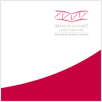Internationales Forschungsnetzwerk Dokumentarische Methode
Die Mitglieder des Internationalen Forschungsnetzwerks arbeiten seit vielen Jahren in Forschung und Lehre auf Basis der Dokumentarischen Methode, die inzwischen ein etabliertes Verfahren der qualitativen Sozialforschung ist. Die Methode folgt prinzipiell der Annahme, dass Menschen nicht nur entlang von theoretischem Wissen handeln, sondern ihre Praxis wesentlich von einem (zumeist implizit bleibenden) Handlungs- und Erfahrungswissen bedingt ist. Dieses implizite Wissen zu rekonstruieren und auf dem Wege der komparativen Analyse und Typenbildung zur empiriegesättigten Theorieentwicklung beizutragen, ist das zentrale Potential der Dokumentarischen Methode.
Die theoretischen und methodologischen Grundlagen der Methode gehen auf Arbeiten des Wissenssoziologen Karl Mannheim vor allem aus den 1920er Jahren zurück und wurden von Harold Garfinkel, dem Begründer der Ethnomethodologie, in den 1950er und 1960er Jahren in einer spezifischen Richtung ausgearbeitet. Als eine empirische Methode, d.h. ein Forschungsverfahren zur qualitativen resp. rekonstruktiven Analyse, wurde die Dokumentarische Methode seit den 1980er Jahren von Ralf Bohnsack entwickelt. An der Weiterentwicklung des Ansatzes waren und sind u.a. verschiedene Mitglieder des Forschungsnetzwerks beteiligt. Mittlerweile sind unzählige Forschungsarbeiten, die mit der Dokumentarischen Methode erstellt wurden, erschienen. Eine regelmäßig aktualisierte Bibliographie finden Sie hier .
Das Forschungsnetzwerk verbindet Professuren in verschiedenen Ländern. Es dient dem Austausch von Informationen und Publikationen wie auch der verbesserten Sichtbarkeit der Dokumentarischen Methode als einem wichtigen Verfahren der qualitativen Sozialforschung.
Bei Fragen zum Netzwerk wenden Sie sich bitte an: Prof. Dr. Arnd-Michael Nohl
Eine Liste der Mitglieder des Netzwerks finden Sie hier
The members of the International Research Network have been working for many years in research and teaching based on the Documentary Method, which has become an established approach in qualitative social research. In principle, this method follows the assumption that people not only act according to theoretical knowledge, but that their practices are essentially structured by a (mostly tacit) knowledge of action and experience. The central potential of the Documentary Method is to reconstruct this tacit knowledge and to contribute to the development of empirically grounded theories through comparative analysis and type formation.
The theoretical and methodological foundations of the Documentary Method go back to the works of sociologist of knowledge Karl Mannheim, mainly from the 1920s, and were elaborated in a specific direction by Harold Garfinkel, the founder of Ethnomethodology, in the 1950s and 1960s. As an empirical method, i.e. as a research approach for qualitative analysis, the Documentary Method has been developed since the 1980s by Ralf Bohnsack. Various members of the research network have been and continue to be involved in the further development of the approach. In the meantime, innumerable research papers have been published that have been produced using the Documentary Method. A regularly updated bibliography can be found here.
The research network connects professorships in different countries. It serves the exchange of information and publications as well as the improved visibility of the Documentary Method as an important approach to qualitative social research.
If you have questions about the network, please contact us: Prof. Dr. Arnd-Michael Nohl
A list of the members of the network can be found here.
Letzte Änderung: 20. Dezember 2021

